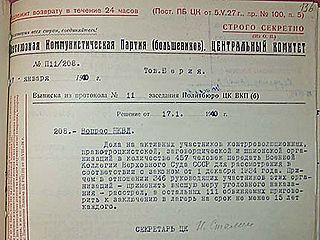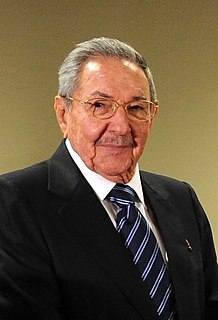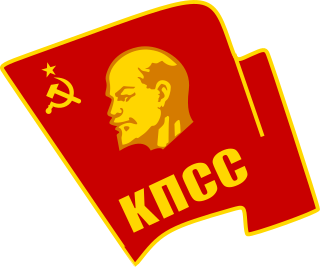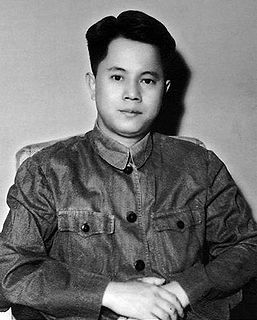External links
- Cuba sacks top government member - from the BBC news website.
Juan Carlos Robinson Agramonte (born July 16, 1956), was a member of the Cuban politburo and First Secretary of the Provincial Committee of the Cuban Communist Party in Santiago de Cuba. In April 2006 he was dismissed from the Politburo, and in June he was sentenced to 12 years in prison for corruption. . He was released from prison in 2010.

A politburo or political bureau is the executive committee for communist parties. It is present in most former and existing communist states.

Raúl Modesto Castro Ruz is a Cuban politician who is currently serving as the first secretary of the Communist Party of Cuba, the most senior position in the one-party communist state, succeeding his brother, Fidel Castro, in April 2011.

Egon Rudi Ernst Krenz is a former East German politician who was the last communist leader of East Germany during the final months of 1989. He succeeded Erich Honecker as the General Secretary of the ruling Socialist Unity Party of Germany (SED), but was forced to resign only weeks later when the Berlin Wall fell.

Mikhail Ivanovich Kalinin, known familiarly by Soviet citizens as "Kalinych", was an Old Bolshevik revolutionary and a Soviet politician. He served as head of state of the Russian Soviet Federative Socialist Republic and later of the Soviet Union from 1919 to 1946. From 1926, he was a member of the Politburo of the Communist Party of the Soviet Union.

Anastas Ivanovich Mikoyan was an Armenian Communist revolutionary, Old Bolshevik and Soviet statesman during the mandates of Lenin, Stalin, Khrushchev and Brezhnev. He was the only Soviet politician who managed to remain at the highest levels of power within the Communist Party of the Soviet Union, as that power oscillated between the Central Committee and the Politburo, from the latter days of Lenin's rule, throughout the eras of Stalin and Khrushchev, until his peaceful retirement after the first months of Brezhnev's rule.
Armando Valladares Perez is a Cuban-American poet, diplomat and human rights activist.
Corps General Abelardo Colomé Ibarra was a Vice President of the Council of State of Cuba and the Cuban Minister of the Interior, serving in the latter position from 1989, until his retirement in October, 2015. Known as Furry he first laid the foundations of State Security in 1959.
Ramiro Valdés Menéndez is a Cuban politician. He became a Government Vice President in the 2009 shake-up by Raúl Castro.

The General Secretary of the Central Committee of the Communist Party of Vietnam, known as First Secretary from 1951 to 1976, is the highest office within the Communist Party of Vietnam and typically the supreme leader of Vietnam. The General Secretaryship was the second-highest office within the party when Hồ Chí Minh was Chairman, a post which existed from 1951 to 1969. The general secretary is also the Secretary of the Central Military Commission, the leading Party organ on military affairs. For a period in its history, the position of general secretary has been synonymous with the paramount leader of Vietnam. The current general secretary is Nguyễn Phú Trọng, and he is ranked first in the Politburo.

Juan Esteban Lazo Hernández is a Cuban politician who has been the President of the National Assembly of People's Power, Cuba's parliament, since 2013. Previously he was Vice-President of the Cuban Council of State. He is a member of the Politburo of the Communist Party of Cuba since 1980 and National Assembly of People's Power member since 1981.

Soviet–Angolan relations were close until the Angolan government renounced Marxist-Leninism in 1990 and adopted a pro-Western foreign policy. The close, personal relationship between President Agostinho Neto and Cuban leader Fidel Castro complicated the Soviet Union's involvement in the Angolan Civil War and foiled several assassination attempts against Neto.

Bruno Eduardo Rodríguez Parrilla is a Cuban diplomat and politician. He is a member of the Politburo of the Communist Party of Cuba, and has served as Cuba's Minister of Foreign Affairs since 2009.
José Ramón Machado Ventura, M.D. is a Cuban revolutionary and politician who was the First Vice President of the Council of State of Cuba from 2008 to 2013. With the election of Raúl Castro as President of Cuba on 24 February 2008, Machado was elected to succeed him as First Vice President. He has been Second Secretary of the Communist Party of Cuba since 2011.

Trần Đại Quang was a Vietnamese politician who was the eighth President of Vietnam, in office from 2 April 2016 until his death in 2018. Trần Đại Quang was elected to the post by the National Assembly of Vietnam, and nominated by his predecessor Trương Tấn Sang who retired from office. Trần Đại Quang was one of the country's top leaders, along with the Communist Party General Secretary Nguyễn Phú Trọng.
Đinh La Thăng was a former Minister of Transport, former Communist Party Secretary of Ho Chi Minh City, and former member of the Politburo. On 22 January 2018 he became the first top Party official in several decades to be tried and sentenced to prison for corruption.

Miguel Mario Díaz-Canel Bermúdez is a Cuban politician serving as the President of Cuba since 2019. He was previously President of the Council of State of Cuba from 2018 to 2019 and First Vice President from 2013 to 2018. He has been a member of the Politburo of the Communist Party of Cuba since 2003, and he served as Minister of Higher Education from 2009 to 2012; he was promoted to the post of Vice President of the Council of Ministers in 2012. A year later, on 24 February 2013, he was elected as First Vice President of the Council of State.

The First Secretary of the Central Committee of the Communist Party of Cuba is the de facto leader of Cuba. The First Secretary is the highest office within the Communist Party of Cuba as well as ranking first in the Politburo, the highest decision-making body in Cuba, which makes the office holder the most powerful person in Cuban government. In Communist states the First or General Secretary of the Communist Party is typically the de facto leader of the country and a more powerful position than state offices such as President or Prime Minister, when those positions are held by different individuals.From 1961 until 2011, the position of First Secretary was held by Fidel Castro, who was Prime Minister of Cuba and, until 2008, President of the Council of State. The current first secretary is his brother, Raúl Castro, who was President of the State Council and Ministers Council of Cuba from 2008 until 2018. The post was named in imitation of the office of First Secretary of the Communist Party of the Soviet Union, which was staffed by Leonid Brezhnev.

The Communist Party of Cuba is the ruling political party in the Republic of Cuba. The Cuban constitution ascribes the role of the party to be the "leading force of society and of the state". It was founded on 3 October 1965 as a successor of the United Party of the Cuban Socialist Revolution, which was in turn made up of the 26th of July Movement and Popular Socialist Party that seized power in Cuba after the 1959 Cuban Revolution.

The Political Bureau of the Central Committee of the Communist Party of the Soviet Union was the highest policy-making authority within the Communist Party of the Soviet Union. It was founded in October 1917, and refounded in March 1919, at the 8th Congress of the Bolshevik Party. It was known as the Presidium from 1952 to 1966. The existence of the Politburo ended in 1991 upon the breakup of the Soviet Union.

Fang Yi was a Chinese Communist revolutionary, diplomat, and high-ranking politician. As a military leader, he participated in the Second Sino-Japanese War and the Chinese Civil War. After the founding of the People's Republic of China in 1949, he served as Vice Governor of Fujian, Vice Mayor of Shanghai, economic representative at the Chinese embassy in North Vietnam, President of the Chinese Academy of Science, and Vice Premier of China. He was also a member of the Politburo of the Communist Party of China.